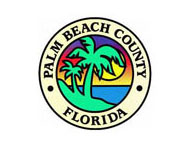Palm Beach County officials note that security experts have been a spike in e-mail scams linked to the COVID-19 coronavirus that is the worst they have seen in years. Below are five trending campaigns:
• 1. Click here for a cure: The e-mail is purported to be from a doctor claiming to have details about a vaccine being covered up by the Chinese and UK governments. Those who click on the attached document are taken to a spoof web page designed to harvest login details.
• 2. Covid-19 tax refund: This e-mail asks you to click on “access your funds now,” which goes to a fake government web page encouraging you to input your financial and tax information.
• 3. Little measure that saves: Hackers pretending to represent the World Health Organization (WHO) claim that an attached document details how recipients can prevent the disease’s spread. But the attachment doesn’t contain any useful advice and instead infects computers with malicious software. To avoid this scam, be cautious of e-mails claiming to be from the WHO. They are probably fake.
• 4. The virus is now airborne: The subject line reads: Covid-19 – now airborne, increased community transmission. It is designed to look like it’s from the Centers for Disease Control & Prevention (CDC). It uses one of the organization’s legitimate e-mail addresses but has in fact been sent via spoofing tool.
• 5. Donate here to help the fight: The fake CDC email asks for donations to develop a vaccine and requests payments are made in the cryptocurrency bitcoin. The e-mail address and signature look convincing.
The best way to see where a link will take you is to hover your mouse cursor over it to reveal the true web address. If it looks suspicious, don’t click it.








